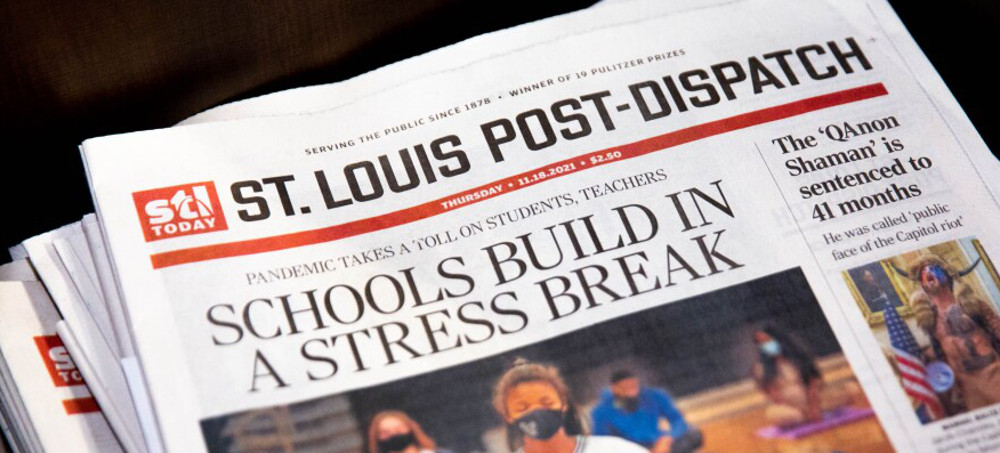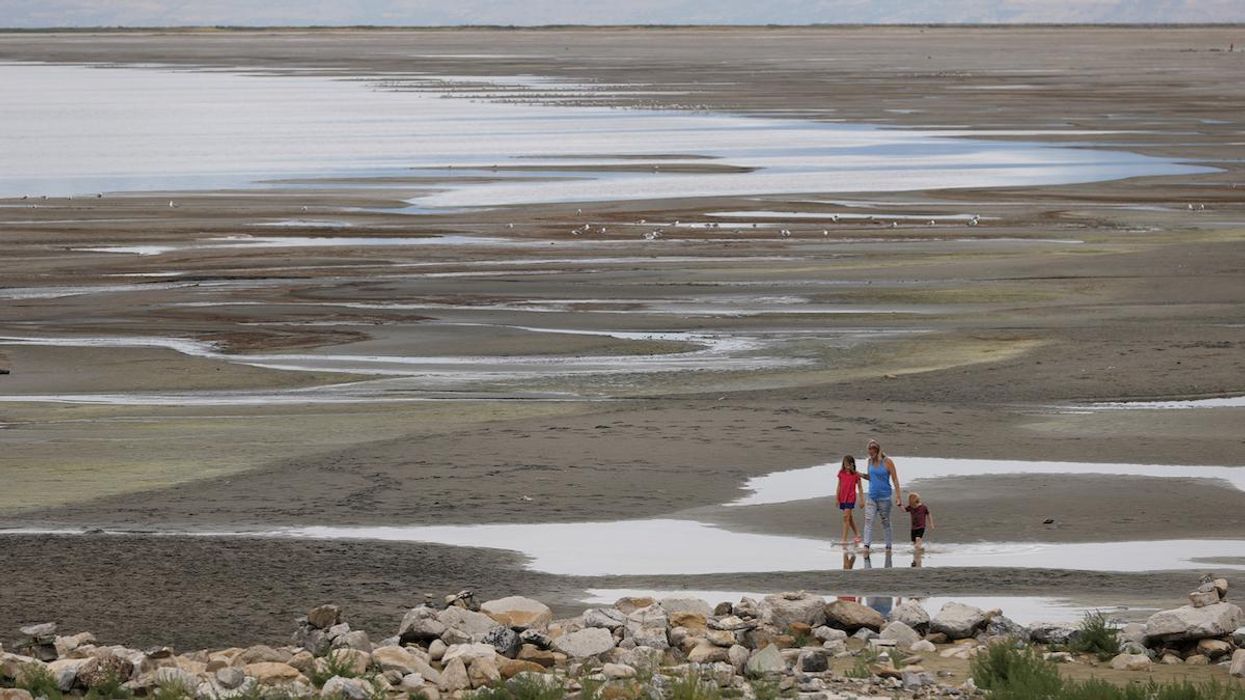Live on the homepage now!
Reader Supported News
The BBC points out that Apple takes pride in the privacy it provides to users, and alleges that it has been in a constant race with NSO to close off vulnerabilities, as the Israeli hackers constantly developed new exploits. NSO spyware can vacuum up all the data on a person’s phone, turn on the microphone and camera and, well, spy on them.
The Biden administration in early November banned NSO from the U.S. for “malicious cyber-activities.” Israeli government attempts to intervene with Biden to reverse the decision have been rebuffed.
NSO is an example of the way the Israeli occupation of the stateless Palestinians generates tools and techniques that then are sold or adopted abroad for use on human rights activists around the world, including on American citizens.
In its lawsuit, filed in US District Court for the Northern District of California, Apple alleged of the Israeli-backed NSO:
“Defendants are notorious hackers—amoral 21st century mercenaries who have created highly sophisticated cyber-surveillance machinery that invites routine and flagrant abuse. They design, develop, sell, deliver, deploy, operate, and maintain offensive and destructive malware and spyware products and services that have been used to target, attack, and harm Apple users, Apple products, and Apple. For their own commercial gain, they enable their customers to abuse those products and services to target individuals including government officials, journalists, businesspeople, activists, academics, and even U.S. citizens.”
The US Commerce Department seems to agree with this characterization, saying of NSO that it
”developed and supplied spyware to foreign governments that used these tools to maliciously target government officials, journalists, businesspeople, activists, academics, and embassy workers. These tools have also enabled foreign governments to conduct transnational repression, which is the practice of authoritarian governments targeting dissidents, journalists and activists outside of their sovereign borders to silence dissent. Such practices threaten the rules-based international order.”
There appears to have been an uptick in NSO-backed hacking in 2021. Apple alleged in its complaint,
“Because of Apple’s investment in, and longstanding commitment to, product security and privacy, there is critical need for the company’s products around the world. There are 1.65 billion active Apple devices worldwide, consisting of over a billion iPhones and hundreds of millions of other active Apple devices such as Mac, iPad, and Apple Watch. 5. This action seeks redress for Defendants’ multiple violations of federal and state law arising out of their egregious, deliberate, and concerted efforts in 2021 to target and attack Apple customers, Apple products and servers and Apple through dangerous malware and spyware that Defendants develop, distribute to third parties, and use (or assist others in using) to cause serious harm to Apple’s users and Apple.”
The consequences for human rights workers of NSO’s malware have often been fatal.
An investigation by The Guardian demonstrated that the Saudi government used NSO spyware to hack into the phones of dissident Washington Post columnist Jamal Khashoggi and his friends and family. On the basis of what the Saudi secret police learned about his activities, they lured him to the Istanbul consulate where they strangled him to death on October 3, 2018, and then cut up his corpse with a bone saw to smuggle it in pieces out of the consulate.
Citizen Lab in Toronto found that the 6 Palestinian human rights organizations recently branded “terrorists” by the Israeli state were under NSO surveillance. European governments have slammed the Israeli charges against these organizations as false. Some observers believe that the surveillance was about to be revealed, leading the Israelis to attempt to distract the world with its outrageous charges against human rights workers.
In 2017, NSO hacking tools were used to break into 1400 American Whatsapp accounts, provoking a complaint from Facebook (now Meta) that led to an FBI investigation of the firm. It is likely that FBI investigation that began the scrutiny that led to the software being banned in the United States. NSO has engaged in widespread influence peddling among former Bush, Biden and Trump administration security officials by putting them on payroll.
There is a lot of talk of OSY Technologies, which owns NSO, being forced into bankruptcy as the US ban is causing it to lose contracts, including in Europe.
 A homeless man on a park bench in Brooklyn. (photo: Spencer Platt/Getty)
A homeless man on a park bench in Brooklyn. (photo: Spencer Platt/Getty)
New research into life expectancy across England’s richest and poorest areas reveals the real cost of social inequality: a decade of life.
There has, predictably, been little real movement in this direction. Last week came the news that England’s richest are now expected to live a decade longer than the country’s poorest.
The analysis of ONS data by health care think tank The King’s Fund was an indictment of what it called “institutionalized” inequalities in health care and wider society. Take Westminster and Blackpool, the two areas with the biggest divide. Wealthy Westminster saw male life expectancy rise from 77.3 to 84.7 years between 2001–3 and 2018–20 — a rise of 7.4 years. In Blackpool, which has the lowest prosperity rates and was found to be home to eight of the ten most deprived neighborhoods in England, longevity only increased by 2.1 years from 72 to 74.1. That means the life expectancy gap between the two has risen from just over five years to 10.7 years in less than two decades. For women, the same gap had risen from 3.9 to 8.1 years.
While the data goes as far back as 2001, it’s worth noting that some of the most significant effects on life expectancy date to 2010, and the election of the current government. A huge array of studies from academics studying stalling life expectancy, rising mortality rates, and austerity have all pointed to the government’s decision to slash health services in real terms as the major cause of these regional inequalities that we’re now trying to “level up.”
Often the social impacts of poverty and deprivation can seem abstract, particularly because of scale: it’s hard to wrap your head around five-figure increases in deaths and rising averages. But behind each of those numbers is someone whose brain tumor wasn’t caught until it was terminal, and a family who now face living without their relative. When we talk about regional inequality and falling life expectancy, that is what we’re talking about.
The “social determinants of health” are, in fact, everywhere. Premature death rates are much higher for those living in homes without proper heating or insulation during winter, while living in overcrowded housing increases the risk of cardiovascular diseases, respiratory diseases, depression, and anxiety. In the most deprived parts of the capital, the concentration of nitrogen dioxide, one of the main air pollutants that cut short 28–36,000 lives a year, is 24 percent higher in the most deprived areas than the least deprived. From access to green spaces to education and risk of road traffic accidents, the list goes on and on.
Even after diagnosis, despite the National Health Service (NHS) thankfully being free at the point of use, your level of wealth can heavily impact your ability to receive and survive treatment. The most recent data from 2017 shows that 14.3 percent of people from the most deprived areas of England who attended emergency rooms were not seen within the target, compared to 12.8 percent of people from the least deprived areas. After the government cut Universal Credit for millions — including for sixty thousand cancer patients — experts have warned that countless more diagnosed patients will die as a result of the rising rates of poverty.
To those with money, that may seem surprising. But for the immunosuppressed cancer patient who faced playing “Russian roulette with their life” because they were forced to take public transport during a pandemic, or for others who couldn’t pay for heating or new clothes for their terminally ill partners, the effects of poverty on one’s ability to fight a disease is obvious.
This kind of inequality is heavily regional. In 2019, just under 140,000 deaths — nearly one quarter of all deaths — were considered avoidable either through timely, effective health care or wider public health policy. Within that, Blackpool had the highest preventable male mortality rate for the fifth year running, with 349.7 deaths per 100,000 males. Affluent, rural Hart in Hampshire only had an additional 246.5 deaths per 100,000, making it the lowest in the country. By almost every metric, if you’re wealthier, or from wealthier parts of the country, you are healthier, too.
Those inequalities appear within regions as well. Take the Queen Elizabeth Hospital in King’s Lynn, which not only received an “Inadequate” rating in its most recent Care Quality Commission report but is actually unable to afford to fix its roof. The roof is propped up by almost two hundred supports to keep it from collapsing. The number of patients waiting over four hours in the emergency room at Queen Elizabeth Hospital more than doubled in the years after the Conservatives took power in 2010.
Meanwhile, nearby Norwich has hospitals that consistently rate far higher. Just over the county border in affluent Cambridge, Addenbrooke’s and Royal Papworth hospitals are some of the highest rated in the country. Unsurprisingly, the child poverty rate in Cambridge is nearly half the 29 percent child poverty rate in King’s Lynn. Even in cities like London, hospitals can see dramatic shifts in quality between wealthier and poorer boroughs, since the government NHS trusts of the latter often have much higher costs and far less funding, limiting the treatments they can provide.
“That’s a thing that horrified me when I was diagnosed — not all hospitals give the same treatment,” one cancer patient I previously interviewed put it. “And then money becomes an issue when you’re weighing up your health. . . . Is it about going to the better hospital or only having the money to go to a closer hospital?”
These problems aren’t some unsolvable fact of life: the very fact that inequalities have worsened after years of austerity is proof of that. But more needs to be done — at the current rate the Health Foundation found, it could take several decades to close the gap. From offering a real long-term solution to the social care crisis and much higher NHS funding to solving the underlying poverty that causes these inequalities, the ideas and policies that could help solve this problem are out there.
 From left: Socialists Charlotte Kelly, Willie Burnley, Jr. and Eve Seitchik shared campaign staff and a platform to run for city council seats in Somerville, Massachusetts; Kelly and Burnley won. (photo: Pine McCabe)
From left: Socialists Charlotte Kelly, Willie Burnley, Jr. and Eve Seitchik shared campaign staff and a platform to run for city council seats in Somerville, Massachusetts; Kelly and Burnley won. (photo: Pine McCabe)
In spite of India Walton’s loss in Buffalo, N.Y., Election Day 2021 still showed promise for socialism on the local level.
In summer 2020, Burnley helped found the group Defund Somerville Police (Defund SPD) to combat the city’s plan to protect the police budget and cut social services — including the Office of Housing Stability, established the year after Burnley’s displacement to help priced-out renters like him. Pressure from Defund SPD, including a bike caravan to the homes of city councilmembers, pushed through a 7.7% decrease in the city’s 2021 police budget, freeing up hundreds of thousands of dollars for housing and food aid.
On Nov. 2, Burnley, now 27, won a seat on Somerville City Council with a platform focused on housing and public safety beyond policing. Burnley is no stranger to electoral politics, having worked as a field organizer to re-elect Massachusetts Sens. Elizabeth Warren and Edward Markey, but his own campaign deviated from the standard protocol. It was jointly run with two other first-time candidates — Charlotte Kelly, a longtime education organizer and co-founder of Defund SPD, and Eve Seitchik, a former co-chair of the local chapter of the Democratic Socialists of America (DSA), which Burnley joined in 2018. The three shared campaign staff and a platform to create a DSA slate for at-large council seats.
“Working in collaboration” was the “embodiment of the politics that we wanted to bring to the city council,” Burnley says.
Burnley, Kelly and Seitchik placed second, third and fifth (respectively) among eight at-large candidates, with just the top four candidates winning seats. But come January, Burnley and Kelly will join two DSA-backed incumbents on Somerville’s 11-person council, with plans to push a pragmatic agenda they’ve dubbed “sidewalk socialism” — an homage to the “sewer socialists” who held office in Milwaukee a century ago.
On the campaign trail, they connected big-picture priorities with the daily facts of life — like how a Green New Deal might expedite sewer upgrades and alleviate flooding. Canvassers also hammered on what Spencer Brown, co-chair of Boston DSA, calls “the two Rs” — rats and rent control. Housing affordability is a perpetual issue, but after hearing complaint after rodent complaint from renters, Kelly’s campaign released a “rat white paper” with solutions from experts and community members, such as a free municipal compost program and the expansion of existing rat mitigation programs to include renters.
Kelly cites that process as an example of how she plans to govern as a “movement elected official,” to allow “people to take ownership over the direction of the policies and structural changes that we need to see,” she says.
Boston-area socialists and progressives also see an opening after the upset victory of Boston Mayor Michelle Wu, who ran on fare-free transit and a local Green New Deal. She was the sole mayoral candidate to endorse rent control.
To pave the way for sidewalk socialism in Somerville, Boston DSA had hoped to clinch a total of seven at-large and ward seats — a would-be “socialist takeover” in the city of 80,000, per a spring 2021 Politico headline. The group also made endorsements in Boston, Cambridge and Medford, deploying some 500 canvassers to knock more than 100,000 doors in four cities. Of 12 endorsed candidates, seven won, most of whom had backing from progressive groups like Our Revolution or Run for Something — including Kendra Hicks, a first-generation Afro-Latina and self-described socialist who overcame redbaiting and racist attacks to represent Boston’s 6th District.
The losses sting, but Brown puts them in context: “A few years ago, just getting anyone on a city council would have been a dream.”
That’s a broad theme for the Left coming out of Election Day, where perhaps the biggest news was insurgent mayoral candidate India Walton’s loss in Buffalo, N.Y. But socialists won in at least 23 of the 30 local races where DSA’s national organization made endorsements, clinching unlikely victories in cities like St. Petersburg, Fla., and sending multiple members into office in New York City, Ithaca and Rochester, N.Y., and Minneapolis.
Minneapolis also voted down a high-profile ballot question that would have allowed the city to replace its police force with a department of public safety — though support was highest in the three wards where socialist city council candidates campaigned. But Burnley rejects the narrative that these results represent a referendum on last summer’s uprising. He cites a Tufts University survey showing a majority of Somerville residents think police aren’t needed in situations involving mental health crises.
“People know something needs to change. There’s not necessarily a clear consensus on what that [change] needs to be,” Burnley says. “But that’s what organizing is about.”
Burnley adds he didn’t shy away from the “defund” slogan but took the time to talk through a different plan for community safety — including a new civilian crisis response system.
“I can’t say I changed everyone’s mind,” he says, “but that’s not the job of a campaign cycle. That’s lifelong work.”
 Copies of the St. Louis Post-Dispatch sit on a newsstand on Monday, Nov. 22, 2021. (photo: Brian Munoz/St. Louis Public Radio)
Copies of the St. Louis Post-Dispatch sit on a newsstand on Monday, Nov. 22, 2021. (photo: Brian Munoz/St. Louis Public Radio)
New York-based Alden Global Capital is offering to buy Lee Enterprises, which owns the St. Louis Post-Dispatch, the Omaha World-Herald, the Sioux City Journal and other newspapers around the Midwest.
Alden Global Capital revealed a proposal Monday to purchase Lee Enterprise Inc. and its newspapers at $24 a share, casting alarm through the many newsrooms owned by Lee.
Lee counts the St. Louis Post-Dispatch, the Omaha World-Herald and the Sioux City Journal among its holdings in the Midwest.
Alden is a hedge fund that has become one of the largest owners of newspapers across the United States, including the Denver Post and The Mercury News in San Jose, California. Alden has developed a reputation for cost-cutting and downsizing the staff of newspapers it owns.
Alden earlier this year bought Tribune Publishing, whose flagship newspapers include the Chicago Tribune and Baltimore Sun.
In a letter to Lee’s board of directors, Alden said it was interested in Lee as part of its commitment to the news industry in the long term.
An Alden spokesperson did not respond to a request for comment. In earlier published accounts of Alden’s business, managing director Heath Freeman has said his hedge fund is among the very few outfits still willing to buy newspapers when others would have left them for dead.
But Alden’s reputation in the newspaper industry, which has broadly faced headwinds in the last 20 years, is less glowing.
For Omaha World-Herald News Guild President Todd Cooper, the news of Alden’s offer was devastating.
“They (Alden) hide in the shadows but they’re the worst of newspaper owners,” he said. “They care about nothing but the bottom line and pounce on this notion that newspapers are dead or a dead medium — and that's just not true.”
Cooper, who has worked as a courts reporter at the Omaha World-Herald for more than 24 years, said the paper’s union fears that if Alden buys Lee, the Herald and many of Nebraska’s other newspapers will be “stripped down” by staff cuts.
“The fewer reporters you have, the fewer reporters you have to watch out for government waste and wrongdoing,” Cooper said. “It becomes this cycle and they lead newspapers to circle the drain until you’re only covering the bare minimum.”
Lee Enterprises bought the Herald in 2020 from Berkshire Hathaway, a conglomerate once run by Warren Buffett, and has been managed by Lee for about 18 months prior to the sale.
Cooper said Alden would control the majority of newspapers in Nebraska if it buys Lee.
“It is not hyperbole to say that parts of democracy die when a hedge fund is allowed to run local news into the ground, whether it be a newspaper or a TV station,” he said. “Trust in government erodes as our watchdog function gets stripped down.”
Jeff Gordon, president of the union that represents staffers at the St. Louis Post-Dispatch, echoed Cooper’s sentiments.
Gordon, a sports columnist at the Post-Dispatch, said the union is working to convince Lee to not sell to Alden.
“Lee has run its properties pretty tightly to say the least, but Alden will take it to the next level,” he said. “Alden does not look at these properties in any sort of overly long-term view. They just want to get some money out of it and move on.”
Kyle Munson questions whether more consolidation provides an answer to that problem. Munson is a former columnist with the Des Moines Register and the current board president of the Western Iowa Journalism Foundation, a nonprofit that supports community newspapers.
“I just think we have yet to see where scale, for these local communities, really makes up the difference unless you change the economic foundations of the news operation,” Munson said.
Lee has already cut down on the number of reporters at its papers, Munson said, and he worries the trend would continue or worsen under Alden.
“I mean, there are always some assets yet to be drained out of any particular news operation until the lights go off,” he said.
A “disaster for democracy”
Kathy Kiely, the Lee Hills Chair of free-press studies at the University of Missouri School of Journalism, called Alden’s proposed purchase of Lee a “disaster for democracy.”
“This sort of hedge fund behavior is really putting greed and self-dealing above democracy,” Kiely said of Alden’s proposal. “It’s a dagger to the heart of democracy.”
Kiely called Alden a “vulture fund” and said the hedge fund cuts its newspapers “to the bone.” She used the Chicago Tribune as an example of the damage she said Alden can do to a paper. A recent Poynter article estimated more than 10% of the paper’s staff was cut within six weeks of Alden’s purchase of the paper.
She said the practice of hedge funds buying newspapers started more than a decade ago when newspapers had many assets like buildings, vehicles for deliveries and more.
However, Kiely said the motive behind hedge funds like Alden’s attraction to local newspapers has become less and less clear as those assets have disappeared or been sold off.
The news of a possible purchase is particularly bad for the Midwest region, Kiely said, where Lee Enterprises owns 24 papers in Iowa, Missouri and Nebraska.
She said news deserts — places that have no local news sources — have become rampant throughout the region, a problem she predicts will worsen if Alden buys Lee.
“These newspapers are really important news engineers in this region and the idea that a hedge fund that has a record of decimating papers wants to come in and take over more — that should make everyone shudder,” Kiely said. “I wish Alden would prove me wrong, but so far their track record has been remarkably consistent.”
Lee Enterprises
Lee Enterprises is based in Davenport, Iowa. The company traces its origins back to 1890. Its website points out that Sam Clemens, better known as Mark Twain, wrote for the Muscatine Journal, which Lee Enterprises still owns.
Lee Enterprises bought the Post-Dispatch in 2005 from Pulitzer Inc. for $1.46 billion. Cannell Capital, a hedge fund that owns nearly 7% of Lee Enterprises, described the 2005 purchase as a “near-fatal acquisition” and noted the newspaper owner’s stock has dropped 93% since then.
That description was contained in an Aug. 31 letter that Cannell Capital managing member J. Carlo Cannell sent to Lee Enterprises board chairwoman Mary Junck. The letter from Cannell was sharply critical of Lee Enterprises, commenting that the company “may have the best local content,” but that its legacy costs were too high and its user interface was dated.
Cannell’s letter took the company’s board to task for not adapting quickly enough to a digital media environment and claimed the company could reach a much higher share price under a different board of directors.
Cannell also made a prediction in that letter from August about what could happen if Lee Enterprises did not take steps to increase its value.
“Regardless, the valuation gap is so great that if the stock does not appreciate materially then CC forecasts that a third party will move – collaboratively or rapaciously – to transfer the value from the current owners for their own exclusive benefit,” Cannell wrote.
A statement from Lee Enterprises says it will carefully review Alden’s proposal to determine the course of action it believes is in the best interests of the company and its shareholders.
 The South Dakota Supreme Court has upheld a lower court's ruling that nullified a voter-passed amendment to the state constitution that would have legalized recreational marijuana use. (photo: Steve Helber/AP)
The South Dakota Supreme Court has upheld a lower court's ruling that nullified a voter-passed amendment to the state constitution that would have legalized recreational marijuana use. (photo: Steve Helber/AP)
Gov. Kristi Noem instigated the legal fight to strike down the amendment passed by voters in November. Though the Republican governor opposed marijuana legalization as a social ill, her administration's arguments in court centered on technical violations to the state constitution.
The high court sided with those arguments in a 4-1 decision, ruling that the measure — Amendment A — would have violated the state's requirement that constitutional amendments deal with just one subject.
"It is clear that Amendment A contains provisions embracing at least three separate subjects, each with distinct objects or purposes," Chief Justice Steven Jensen wrote in the majority opinion, which found recreational marijuana, medical marijuana and hemp each to be separate issues.
About 54% of voters had approved the constitutional amendment last year. But Highway Patrol Superintendent Col. Rick Miller sued on Noem's behalf. Pennington County Sheriff Kevin Thom also joined the lawsuit. The high court ruled that the law enforcement officers did not have standing to sue, but because Noem authorized Miller's suit, they treated it as if Noem brought the lawsuit herself.
Noem praised the decision, and noted that it would not change how she implements a separate, voter-passed law that legalizes medical marijuana. That law has already taken effect.
"South Dakota is a place where the rule of law and our Constitution matter, and that's what today's decision is about," she said in a statement. "We do things right — and how we do things — matters just as much as what we are doing."
Pot legalization efforts will continue in the state
The state Supreme Court's decision upheld a circuit judge's ruling in February. Advocates for pot legalization appealed, arguing that the Supreme Court should dismiss the legal challenge because it overturned the will of voters and dampened their future ability to enact laws through the ballot box.
Matthew Schweich, the campaign director for South Dakotans for Better Marijuana Laws, called the ruling "extremely flawed" and reliant on "a disrespectful assumption that South Dakota voters were intellectually incapable of understanding the initiative."
"The court has rejected common sense and instead used a far-fetched legal theory to overturn a law passed by over 225,000 South Dakota voters based on no logical or evidentiary support," he said in a statement.
Pot legalization is not going away in South Dakota. Marijuana advocates are trying to bring recreational marijuana back to voters next year through a ballot measure that would instruct the Legislature to legalize it. Lawmakers are also considering legalizing pot for adults in the upcoming legislative session.
Marijuana has become broadly accepted around the United States, with a Gallup Poll last year showing 68% of Americans favored legalization. South Dakota was among four states that month to approve recreational marijuana, along with New Jersey, Arizona and Montana. Fifteen states and the District of Columbia have done so.
 Yemeni children play in the rubble of a building destroyed by an air raid in 2019. (photo: Peter Biro/EU)
Yemeni children play in the rubble of a building destroyed by an air raid in 2019. (photo: Peter Biro/EU)
Two bills now before Congress would block a proposed $650 million arms sale to Saudi Arabia. That won’t end the war in Yemen, but it’s a necessary start. Progressive lawmakers should join Ilhan Omar and Bernie Sanders in supporting the bills.
Saudi Arabia’s war against the Houthi faction in Yemen has begun to grind to a halt, with the kingdom hunting for a way out. Nevertheless, the situation on the ground, one of the worst humanitarian crises in the world, has only worsened. The proposed arms sales are consistent with the Joe Biden administration’s policy of publicly opposing Saudi actions while continuing to implicitly support the Saudi military. The two resolutions before Congress are a welcome shift and should be ardently supported by progressive lawmakers and indeed anyone on the Left.
The World’s Worst Humanitarian Crisis
In 2015, responding to the takeover of Yemen’s capital Sana’a by the rebel Houthi group, Saudi Arabia’s fresh and untested crown prince Mohammed bin Salman launched what would become his centerpiece policy, Operation Decisive Storm, which rapidly transformed the Yemeni Civil War into a proxy war between Saudi Arabia and Iran.
Seven years later, the military situation is approaching a potentially brutal stalemate, while conditions in Yemen remain what United Nations secretary-general António Guterres has called the world’s worst humanitarian crisis — an ongoing catastrophe of collapsed infrastructure, disease, and potential famine. The Houthis share culpability, having targeted civilians and blocked humanitarian aid, but the worst of the war’s devastation has resulted from the Saudi bombing campaign and naval blockade.
Saudi planes have flagrantly attacked soft targets like weddings, funerals, and schools — perhaps most notoriously bombing a school bus in 2018 in an attack that killed dozens of children. Civilian infrastructure ranging from hospitals and power plants to fisheries and even farms has also been bombed extensively, damaging not only medical and energy infrastructure but also Yemen’s sparse domestic food supply. As Yemen imports 90 percent of its food, the situation was worsened even further by the Saudi naval blockade of the country’s major ports, which prevented food, medicine, and construction material from entering the country for years.
The result has been a famine threatening nearly 20 million people and a cholera epidemic unprecedented in the modern era. Given the outsize role of the Saudi military in creating the situation, some scholars have even characterized the crisis as a genocide. For their part, the Saudis allege that they have ended the embargo, but major ports remain blockaded, and their commitment to improving the situation is dubious at best, especially now that the Houthis’ territorial gains directly threaten Saudi Arabia’s border regions.
No Arms, No Excuses
The Saudi intervention would have been largely impossible if they had not enjoyed extensive support from the United States every step of the way under the Barack Obama and Donald Trump administrations. Until Biden finally reversed course in 2021, the United States provided the Saudis with vital logistical support: mid-air refueling of Saudi bombers, targeting information, repairs and maintenance for the Saudi air force, and perhaps most critically, billions of dollars of arms sales. Mid-air refueling ended in 2018, and Biden’s decision concluded the United States’ formal support for what National Security Advisor Jake Sullivan called Saudi “offensive operations.”
Biden’s administration has rested on the distinction between “offensive” and “defensive” weapons to justify continuing extensive arms sales. The president’s personal relationship with Mohammed bin Salman is rocky, but his staff have largely avoided taking any serious steps against Saudi Arabia’s worsening domestic repression and are floundering at finding a diplomatic solution to the Houthi-Saudi conflict, which may be metastasizing into an even worse new form. While Iran did not initially directly support the Houthis, they entered the war in response to the Saudi intervention — and what began as a civil war could now stretch to a decades-long proxy conflict if the Houthis take the country.
Unfortunately, Biden’s approach to the Yemen conflict is consistent with the rest of his governance on foreign policy. He has shown little inclination to seriously confront the abuses of US power abroad, preferring to loudly retreat from wars that were already lost while continuing to support the conditions that gave rise to them in the first place. The United States’ secret and semi-secret bombing campaigns against jihadi militant groups in the Middle East, North Africa, and the Horn of Africa have continued largely uninterrupted. Like the Saudi war, these campaigns are of questionable strategic value and have worsened civil wars and exacerbated humanitarian crises; the Saudi war is only the most blatant example.
Biden’s foreign policy team at the State Department and Pentagon also face potential conflicts of interest when it comes to reducing or halting arms sales. Major figures across Biden’s foreign policy team have well-documented ties to military contractors and think tanks funded by the arms industry. His secretary of defense, Lloyd Austin, was even seated on the board of Raytheon prior to accepting Biden’s appointment.
According to the dominant school of thought among Biden’s staff, accepting money from arms companies is not a fundamentally compromising position, because weapons are a necessary tool of statecraft. They clearly do not believe that adding more weapons to the Yemeni conflict is destabilizing, or that even being provided with “defensive” weapons to protect against Houthi attacks on Saudi soil may discourage Saudi Arabia from seeking a negotiated end to the conflict.
Continuing arms sales under these conditions sends the wrong message to all actors. It indicates that the United States is not serious about seeking an end to the war and is willing to continue to shovel money into what is potentially the deadliest ongoing conflict in the world.
Given the inadequacy of the actions taken by the administration, it falls to the public to push for a change in course — and an important tool at our disposal is the legislature. Paul’s and Omar’s joint resolutions will not end the war, but they are a positive and worthwhile attempt to introduce more congressional oversight over arms sales, which would at least hamper the Saudi war effort.
Even the Saudis are looking for a path out of Yemen. The United States must not provide them with a reason to remain.
 Park visitors walk along a section of the Great Salt Lake that used to be underwater at the Great Salt Lake State Park on Aug. 2, 2021, near Magna, Utah. (photo: Justin Sullivan/Getty)
Park visitors walk along a section of the Great Salt Lake that used to be underwater at the Great Salt Lake State Park on Aug. 2, 2021, near Magna, Utah. (photo: Justin Sullivan/Getty)
But this wasn't an isolated incident. A combination of the climate crisis and human water usage have reduced the lake so utterly that The Salt Lake Tribune and AccuWeather announced Monday that they were redrawing their maps to show how how much the lake has really changed.
"The need to redefine the boundaries of the Great Salt Lake is a striking reminder of the profound impact of record-low water levels to the delicate and complex ecology of the Great Salt Lake and its wide-ranging importance to the people and economy of Utah," AccuWeather chief meteorologist Jonathan Porter told The Salt Lake Tribune. "AccuWeather is committed to accurately depicting the boundaries of lakes to highlight the impact of climate change on our changing world."
Historically, the surface of the Great Salt Lake sits at 4,200 feet above sea level, which is what maps formerly showed and is also the sweet spot for the health of the lake and the creatures that live there.
Now, the lake is "a puddle of its former self," as The Salt Lake Tribune put it, sitting at 4,190.6 feet above sea level, or about 10 feet lower than typical. It also only contains 7.7 million acre feet of water, which is about half of the historical average.
This is a problem, because the lake is an important ecosystem that provides many benefits to Utah's animals, humans and economy. The edges of the lake are home to brine shrimp that provide food for migratory birds, Yahoo News explained. When the lake shrinks, these shrimp and the animals that eat them are at risk. In fact, the wetlands surrounding the lake are one of the most important migratory bird habitats in North America, welcoming around 250 species, columnist Robert Gehrke wrote for The Salt Lake Tribune.
When the lake dries, it also threatens human health because the dry, exposed lake bed is fuel for dust storms. When water levels fall, the marinas also become unusable by boaters, which is a problem for recreation and other industries.
Finally, the lake helps produce lake effect snow storms that generate water for the surrounding area, Yahoo News noted.
"From a health perspective, from an economic perspective, from an environmental perspective, the Great Salt Lake is a national treasure and must remain so. It's not just the Great Salt Lake. It's the Colorado River Basin, it's all our lakes and streams and [water] storage capacity in the state," Utah Gov. Spencer Cox said in a Thursday news conference reported by the Salt Lake Tribune. "This is an all-hands-on-deck issue."
The lake's shrinking is partly due to water management issues. In fact, as Gehrke observed, a study found that the lake would be 11 feet higher if it weren't for water diversions upstream for agriculture and residential uses. Currently, Utah allocates water rights based on "beneficial use," meaning right holders have to put it to an agricultural or economic purpose. Gehrke argued that the state should start prioritizing water for conservation as well.
"If we make conservation a priority or at least on equal footing as agriculture, conservation groups and governments can start dedicating water rights for the lake," he wrote.
The lake's shrinking is also an example of how climate change and drought can impact water systems.
"As we change the climate, we have learned over the last many decades that we are also going to fundamentally change how much water we get and where we get it, the intensity of storms, rainfall patterns, the severity of droughts and floods, the demand for water from crops and from our natural vegetation," climate scientist Peter Gleick told Yahoo News.
Follow us on facebook and twitter!
PO Box 2043 / Citrus Heights, CA 95611


